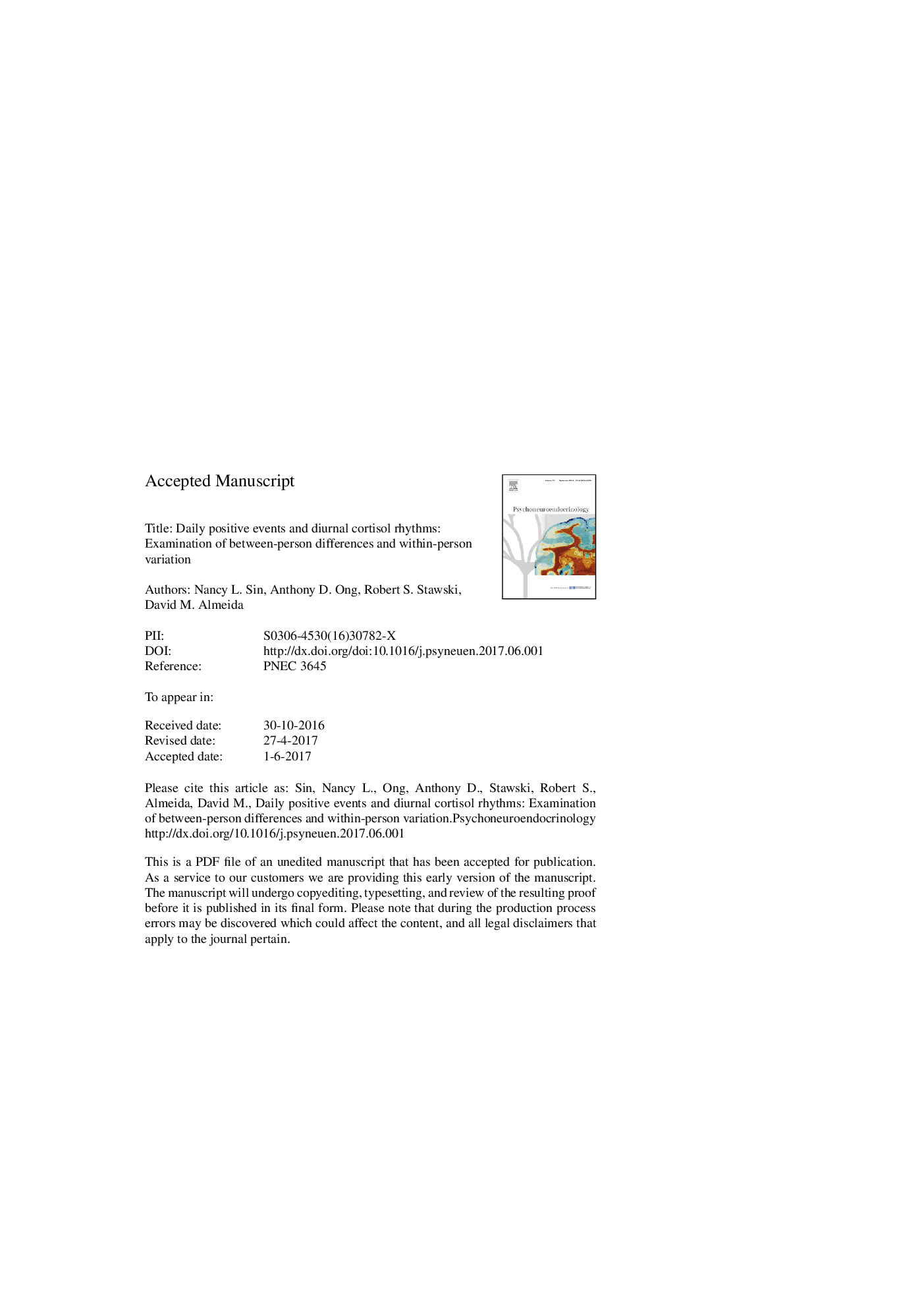ترجمه فارسی عنوان مقاله
رویدادهای مثبت روزانه و ریتم های روزانه کورتیزول: بررسی اختلاف بین فرد و تنوع درون فردی
عنوان انگلیسی
Daily positive events and diurnal cortisol rhythms: Examination of between-person differences and within-person variation
| کد مقاله | سال انتشار | تعداد صفحات مقاله انگلیسی |
|---|---|---|
| 123609 | 2017 | 42 صفحه PDF |
منبع

Publisher : Elsevier - Science Direct (الزویر - ساینس دایرکت)
Journal : Psychoneuroendocrinology, Volume 83, September 2017, Pages 91-100

